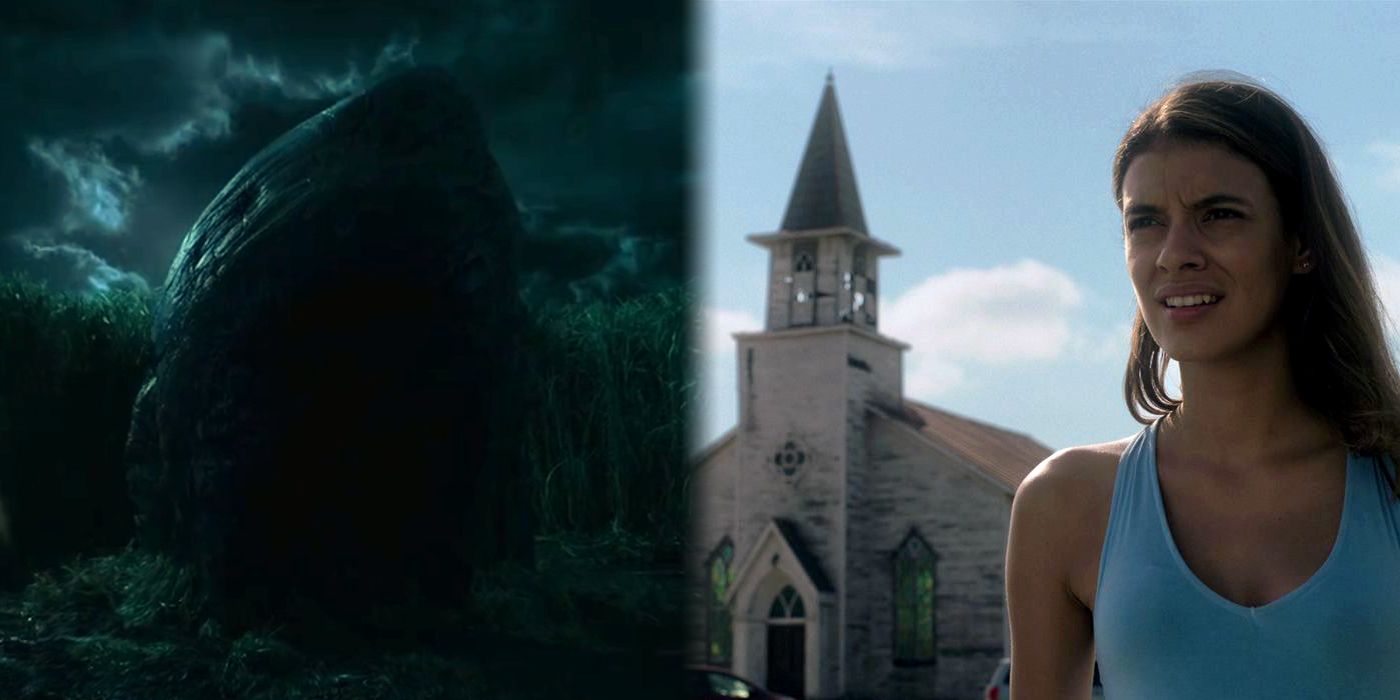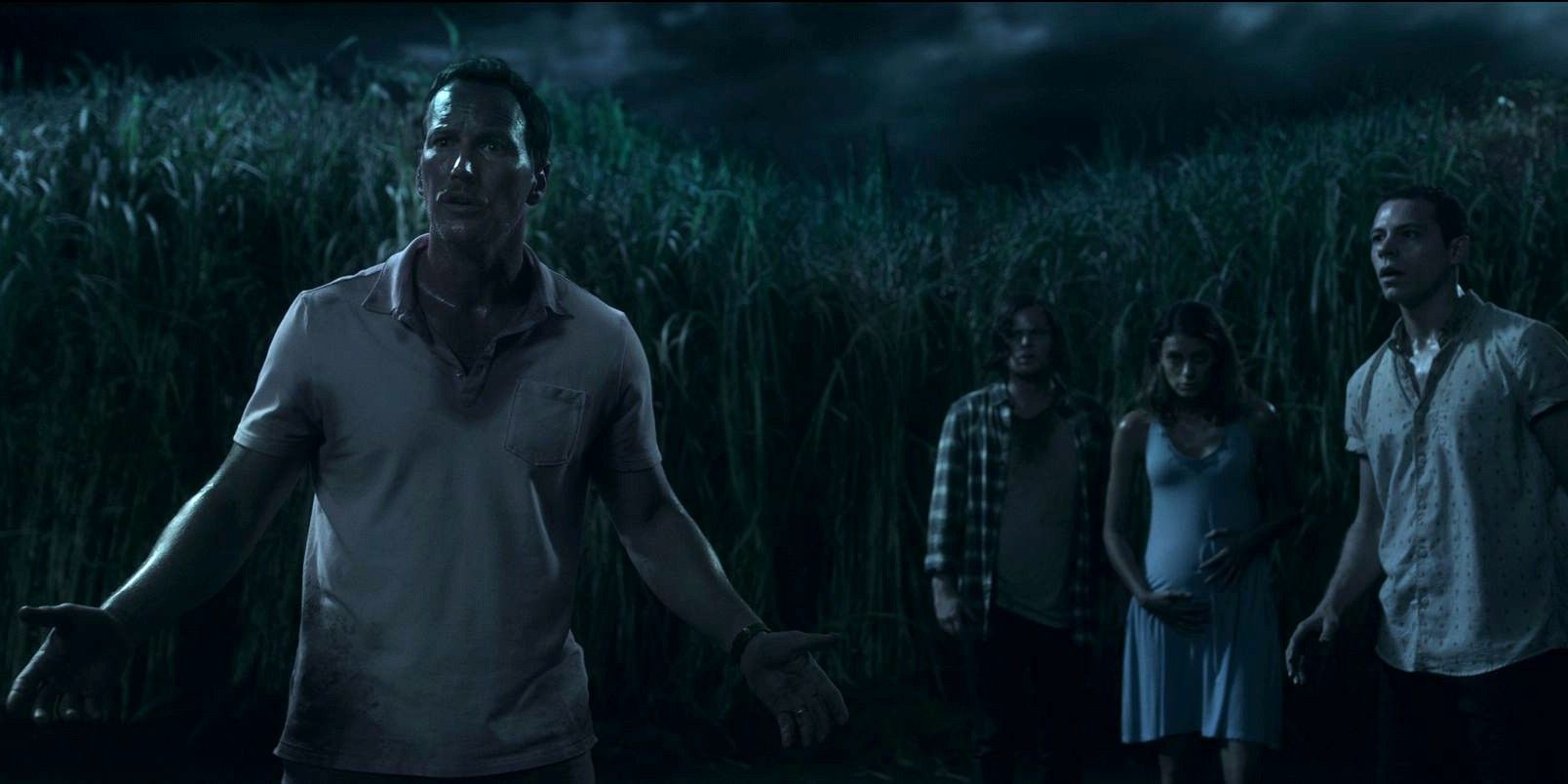In the Tall Grass' central villain is a rock in the middle of a field of tall grass. It seems simple enough: the rock—referred to in the film as the Black Rock—craves human sacrifices. It lures its victims, including Becky (Laysla De Oliveira, Locke & Key), the main character, into the tall grass, which traps them in a time loop where they repeatedly die, encountering past versions of themselves, until they give in and become food for the rock. At first watch, the Black Rock seems like a straightforward ancient evil, like the rock in The Color Out of Space. However, certain aspects of this seemingly simple antagonist could use some explaining.
As a character in the film, the Black Rock functions on at least two levels. On the first level, it is simply the villain, one side of the story's necessary conflict. It's a supernatural horror that preys on unsuspecting passersby. It wants their lives, their blood, and apparently, their babies. These sacrifices sustain it and feed its roots, which are shown in the film as extending deep into the Earth. This aspect of the Black Rock is frightening enough on its own, but it just gets more interesting.
The Black Rock is not just the story's villain, it is also a symbol. This symbolism is clear in the film: Ross (Patrick Wilson, The Conjuring), possessed by the Black Rock, describes it emphatically as being located in the geographic center of the lower 48 states, in America's heartland; the film also refers to the Black Rock in several ways as a "redeemer", a word commonly used to describe Jesus Christ—not to mention there is a church named after the Black Rock right across the street. These references make it clear that the Black Rock—the villain of the story—is a symbol of Christianity in America (or the corruption of Christianity in America).
The Black Rock Wants To Control The Lives Of Becky And Her Baby
Taking the above facts into consideration as well as Becky's unplanned pregnancy, the film as a whole can be seen as an analogy for a woman's right to choose what she does with her body. In the film, Becky has decided to give her unborn child up for adoption after her ex-boyfriend Travis (Harrison Gilbertson) tries to convince her to have an abortion then leaves her. She doesn't seem confident in her decision, and seems to be unduly influenced by her overbearing brother, Cal (Avery Whitted). He thinks he knows what's best for her—especially that Travis is not good for her. Becky is surrounded by men, namely Cal and Ross (and formerly Travis), who want to make her choices for her. They are both essentially symbols of the patriarchy, though with one major difference: Cal's actions come from love, whereas Ross' actions come from a desire for power.
The first example of this is when Cal leads Becky into the tall grass to help lost boy Tobin (Will Buie Jr.), a selfless act which ultimately leads them to the Black Rock and several decaying corpses, (including their own, because of the time loop). If Becky had originally listened to her own instincts and stayed out of the tall grass, she wouldn't have nearly become fodder for the Black Rock. Likewise, when she meets Ross, he promises her that he knows the way out (not incidentally, Jesus is known as "the way"). Instead of leading her out of her predicament, however, he leads her to the Black Rock. There, he tries to indoctrinate her to its ways, which include sacrificing herself and her baby to it.
Becky ultimately escapes the tall grass, but only with the help of Travis. Through their shared ordeal, he finally realizes the errors of his ways—namely that selfishly trying to control Becky was wrong—and sacrifices his life to save hers. In the Tall Grass is far from an indictment of Christianity. In fact, it is more a testament to how men who crave power can corrupt religion to achieve their insidious goals.


